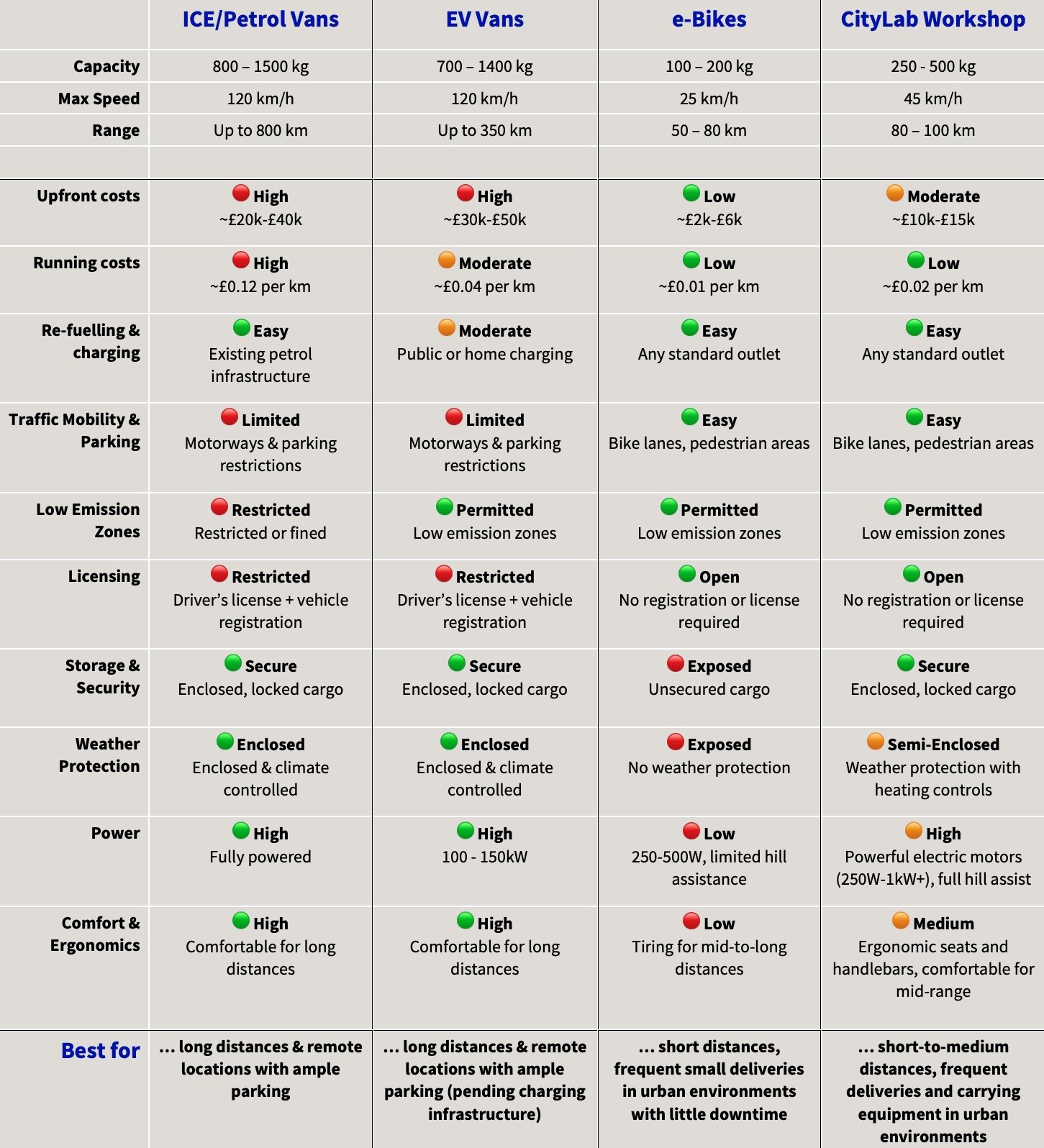Why vans are holding your business back
Cities are growing and so are the challenges for the people who keep them running. Engineers, tradespeople, technicians, delivery drivers, and postal workers are facing daily headaches: congestion, parking fines, emissions restrictions, and high operating costs.
For decades, the “man and van” has been the default, but the world has changed. We now have better options.
We designed the CityLab Workshop to combine the best features of e-bikes, EV vans, and traditional vans, without the worst trade-offs.
Why It Beats the Alternatives
We compared four popular urban mobility options:
ICE/Petrol Vans – Heavy, expensive to run, and often barred from low emission zones.
EV Vans – Cleaner than ICE, but costly to buy, slower to charge, and still restricted by parking.
e-Bikes – Inexpensive and nimble, but limited in payload, security, and weather protection.
CityLab Workshop – Purpose-built for city streets, offering a sweet spot between capacity, cost, and comfort.
Three Key Advantages of CityLab Workshop
Urban Agility Without Compromise
Unlike vans, the CityLab Workshop can use bike lanes, pedestrian areas, and narrow streets; getting you closer to the job, faster.
Big Cost Savings
Less than half the cost of an EV van, and a third of the cost of a petrol van, with running costs as low as £0.02/km.Better for the Planet and Your Business
Zero emissions, fewer fines, and no congestion charges, all while keeping your tools and cargo safe, dry, and secure.
The verdict? Vans are obviously the better choice for long distances and remote locations with ample parking. If you need a vehicle for short to medium distances, with frequent stops in dense urban areas, the CityLab Workshop isn’t just an alternative. It’s the new benchmark.
Check out the scorecard below. Better yet, book a test drive to see for yourself.
The scorecard. CityLab Workshop comes out on top for city workers.

